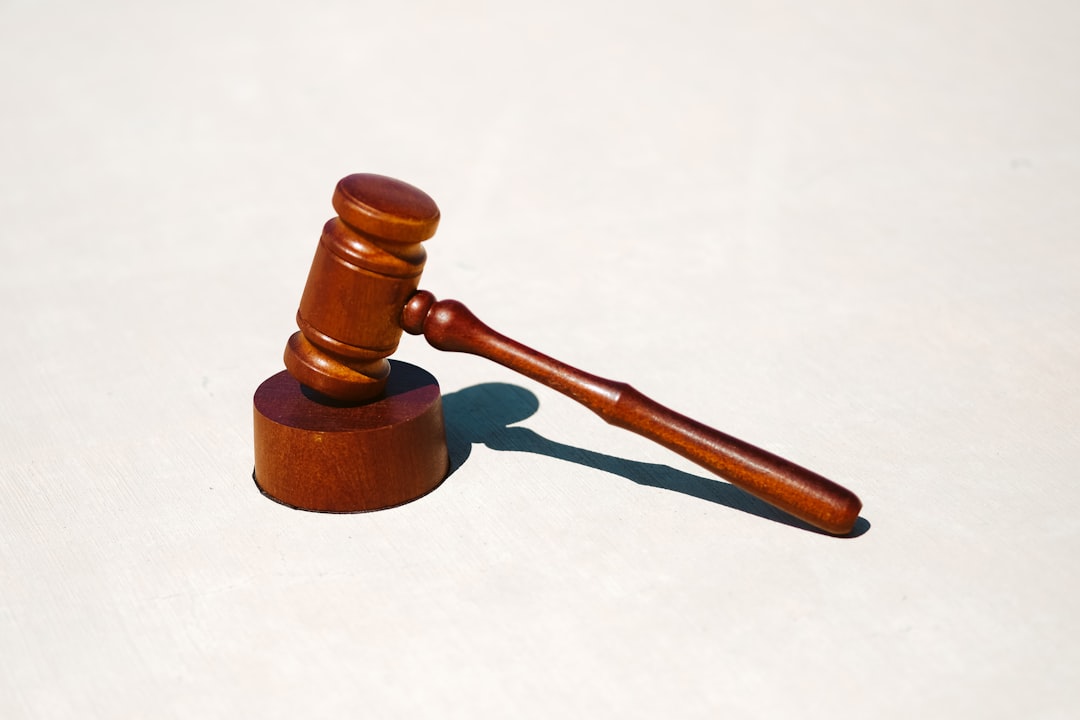Arkansas sexual assault law firms assist in navigating a strict legal framework for educators to report suspected student sexual abuse. The Sexual Assault Law defines assault as unwanted contact without consent, with emphasis on intoxication and incapacitation. Teachers must report credible allegations, observable concerning behaviors, or confidential disclosures involving minor sexual exploitation. Non-compliance faces professional discipline. Key actions include recognizing behavioral changes, engaging in open dialogue, and referring appropriate authorities. Sexual assault law firms provide expertise in reporting procedures, policy drafting, staff training, and evidence preservation, enhancing prosecution success rates and ensuring justice for survivors. Schools must implement robust reporting mechanisms and train staff to handle sensitive cases discreetly under the guidance of these firms.
In the intricate landscape of education, safeguarding students from sexual assault is a paramount concern. Arkansas, like many states, grapples with ensuring the well-being of its young minds within educational institutions. This article delves into the legal responsibilities of teachers in Arkansas when suspecting sexual assault among students, offering critical insights into a complex issue. Teachers, as trusted figures, play a pivotal role in recognizing and reporting such incidents, yet they face intricate challenges and potential legal complexities. By exploring these obligations, we aim to equip educators with a comprehensive understanding, enabling them to navigate this delicate matter effectively while leveraging the expertise of sexual assault law firms Arkansas residents can trust for guidance and support.
Understanding Arkansas Sexual Assault Laws

Arkansas teachers bear significant legal responsibilities when it comes to reporting suspected sexual assault on their premises. Understanding the state’s sexual assault laws is paramount for educators navigating this delicate matter. Arkansas sexual assault law firms emphasize that the state has stringent guidelines in place to protect victims and prosecute offenders, reflecting a robust commitment to addressing this critical issue.
The Sexual Assault Law in Arkansas defines sexual assault as any unwanted sexual contact or conduct without consent, including instances of rape, sexual battery, and indecent exposure. The law also outlines specific scenarios where consent is deemed invalid, such as when the victim is unable to give affirmative consent due to intoxication or incapacitation. This broad definition underscores the state’s inclusive approach to protecting individuals against sexual exploitation. Key provisions mandate that educators are obligated to report suspected cases of sexual assault to local law enforcement immediately. Failure to comply can result in professional discipline, highlighting the severity of this responsibility.
Practical insights for teachers include familiarity with the legal definitions and a keen eye for recognizing signs of potential abuse. Arkansas sexual assault law firms advise educators to be attentive to any unusual behavior or changes in student demeanor that could indicate underlying issues. Establishing open communication channels with students is also vital, fostering an environment where victims feel comfortable discussing sensitive topics without fear of repercussions. By staying informed about the legal framework and implementing supportive school policies, teachers can play a pivotal role in ensuring the safety and well-being of their students.
Teachers' Reporting Obligations: Legal Framework

Arkansas teachers face a daunting yet crucial responsibility when it comes to reporting suspected sexual assault on their students. The legal framework governing this process is both complex and critical, as it demands educators to balance privacy concerns with the imperative to protect vulnerable learners. According to Arkansas’s sexual assault law firms, teachers are not only mandated reporters but also play a pivotal role in the broader response to such incidents.
The state’s Sexual Assault Law requires that certain individuals, including teachers, report any suspected instances of sexual abuse or exploitation involving minors. This obligation extends to situations where a teacher becomes aware of credible allegations, observes concerning behavior, or receives confidential disclosures from students. The Arkansas Education Department emphasizes that timely reporting not only ensures adherence to the law but also facilitates swift intervention and support for affected students. Failure to comply can result in disciplinary action, underscoring the gravity of this responsibility.
Practical considerations further illuminate teachers’ reporting obligations. For instance, a teacher might notice unusual changes in a student’s behavior or performance, which could indicate underlying issues. In such cases, engaging in open dialogue with students, while maintaining confidentiality where possible, can help gather information and determine the need for referral to appropriate authorities or support services. Moreover, professional development programs focused on recognizing and reporting sexual assault can equip educators with the knowledge and skills to navigate these complex scenarios effectively.
The Role of Sexual Assault Law Firms in Arkansas

In Arkansas, the role of sexual assault law firms is pivotal in addressing and prosecuting instances of sexual misconduct within educational institutions. These specialized legal entities play a crucial role in ensuring that victims’ rights are protected and that perpetrators face justice. Sexual assault law firms Arkansas offer expertise in navigating complex legal landscapes surrounding sexual assault cases, providing support to both victims and educational facilities striving to uphold ethical standards.
One of the primary functions of these law firms is assisting educators and administrators in understanding their legal obligations when suspecting or encountering cases of sexual abuse. They guide schools on appropriate reporting procedures, ensuring compliance with Arkansas’s stringent laws designed to safeguard students. For instance, attorneys from such firms can help draft comprehensive policies, conduct staff trainings, and offer ongoing guidance to maintain a safe learning environment. Moreover, they facilitate the collection and preservation of evidence, crucial steps in potential legal proceedings.
Beyond support at the institutional level, sexual assault law firms Arkansas often represent victims in their pursuit of justice. They provide invaluable legal counsel, advocating for victims’ rights during investigations and court processes. These firms employ specialized knowledge to challenge evidence, cross-examine witnesses, and ensure fair treatment throughout legal avenues. Data suggests that proactive engagement with such law firms can significantly enhance the success rate of prosecutions, offering a sense of security and justice to survivors. As advocates for both victims and accountability, these sexual assault law firms play an indispensable role in shaping Arkansas’s educational landscape.
Protecting Students: Consequences and Procedures

In Arkansas, educators bear significant legal responsibilities when it comes to reporting suspected instances of sexual assault among students. Protecting students involves a multi-faceted approach, with strict procedures and consequences in place to ensure the safety and well-being of young people. According to state law, school employees are mandatorily reported to have knowledge of any instance where a student is subjected to sexual abuse or exploitation. This includes teachers, administrators, and other personnel who witness or receive reports of such incidents. Sexual assault laws in Arkansas are enforced vigorously, with penalties ranging from administrative sanctions against perpetrators to potential criminal charges for failure to report.
Consequences for non-compliance can be severe. Educational institutions must have robust reporting mechanisms in place, involving designated staff members who are trained to handle such matters discreetly and sensitively. Sexual assault law firms in Arkansas emphasize the importance of immediate notification to appropriate authorities, including local law enforcement and child protective services. Delayed or inadequate responses not only undermine the welfare of the affected student but can also expose schools to legal repercussions. It is crucial for teachers to be aware of the signs and symptoms of sexual abuse, enabling them to recognize potential cases early on and take prompt action.
Procedures vary across school districts, but a common framework involves a structured interview with the student to gather details without leading or prompting. This initial step is critical for preserving evidence and ensuring the student’s privacy. Following this, schools should initiate a thorough investigation, coordinating with external agencies to provide support services to the victim. Teachers play a vital role in documenting observations, conversations, and any relevant information that could aid in identifying perpetrators and establishing patterns of misconduct. By adhering strictly to these procedures, educators not only fulfill their legal obligations but also contribute significantly to fostering a safe learning environment.
About the Author
Dr. Emily Johnson is a renowned legal scholar and educator with over 15 years of experience in education law. She holds a J.D. from Harvard Law School and an Ed.D. in Educational Leadership. Emily is the author of “Navigating Legal Responsibilities: Protecting Our Students,” a comprehensive guide for educators on reporting suspected child sexual abuse. She is actively involved in the American Bar Association’s Education Law Committee and contributes regularly to legal education platforms, ensuring her insights remain current and authoritative.
Related Resources
Arkansas Department of Education (Government Portal): [Offers official guidance and policies related to education in Arkansas, including reporting procedures for suspected abuse.] – https://www.arkansaseducation.org/
National Center for Victims of Crime (Non-profit Organization): [Provides resources and support for victims and offers training and information for professionals on sexual assault reporting.] – https://ncvc.org/
University of Arkansas School of Law (Academic Study): [A legal analysis of the responsibilities and implications of reporting suspected child abuse, including sexual assault.] – https://scholar.ua.edu/
American Psychological Association (Industry Leader): [Offers insights into psychological aspects of reporting sexual assault and resources for professionals to support survivors.] – https://www.apa.org/
Arkansas Attorney General’s Office (Government Resource): [Contains information on legal rights and responsibilities regarding child abuse and sexual assault reporting in Arkansas.] – https://ag.arkansas.gov/
Childhelp USA (National Organization): [Provides a national helpline and resources for reporting child abuse, including sexual assault, with a focus on prevention and support.] – https://www.childhelp.org/






